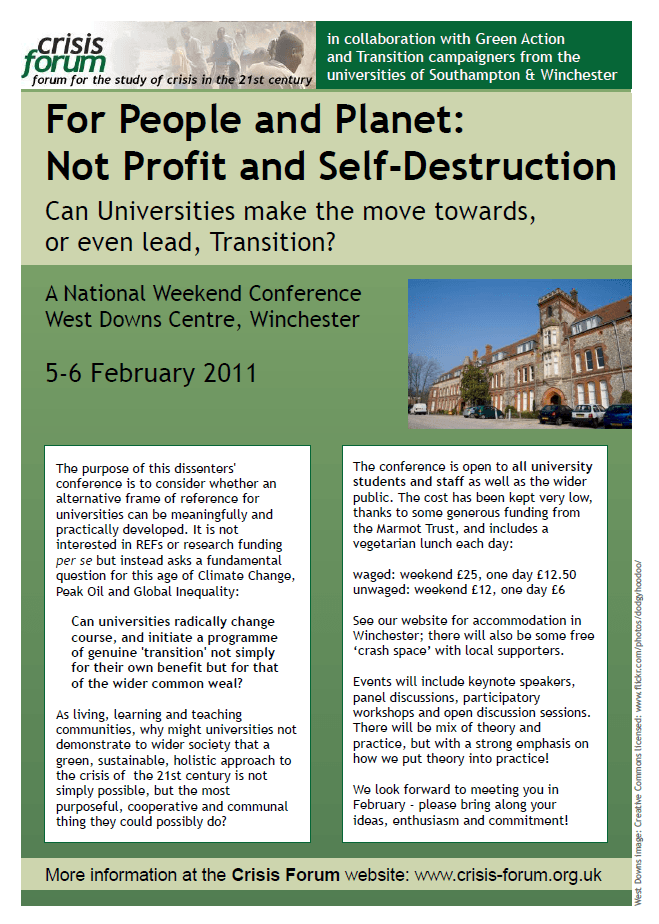UPDATE (30-11-13): Here is a recording of Richard Stallman’s talk at the University of Lincoln. He spoke for over two hours and then took questions. My recording pauses at 1 hour 15 mins as the batteries ran out on my recorder and I switched to my phone. Only a couple of minutes was missed in the change over. The quality of the recording throughout is good. Stallman’s talk will be familiar to anyone who has followed his work and it provides a broad and structured introduction to his arguments. A key point for me during the evening was from 2:13 to 2:18hrs, when a member of the audience was asking Stallman about the need for innovation and progress. Wasn’t non-free, proprietary software acceptable if it results in the saving of lives, as in the health industry? Stallman said that he would chose freedom over progress and innovation. “Freedom is more important than these things!.. Sometimes people sacrifice their lives for freedom!”
Stallman’s views are difficult to fully take on board because their implications are so far reaching. Although he is well known for his role in the history of computing, his talk was not primarily about technology but about power and the relationship between citizens and the state. His views follow a liberal (libertarian?) tradition of arguing for liberty and freedom, but are combined with strong socialist reforms to ensure a redistribution of wealth and guarantee equality and inclusion in society. He also makes recurrent moral and ethical arguments – often phrased in terms of good and evil – that I interpret as attempts to cut through the complexity of moral philosophy and speak to common sense.
In person, Stallman is odd, funny, sincere and forceful in his views. I’m not convinced that he fully understands the implications of his arguments as truly revolutionary but at this point in time I think they are. I think there’s a need to study his work from the point of view of political philosophy and work with him to fully connect his arguments with liberal and socialist traditions of thought and political action. For sure, it would lead to effective critiques of his views and in doing so help strengthen his arguments and make them more forceful and compelling.
Download the MP3 file.

Richard Stallman’s talk is licensed under a Creative Commons Attribution-NoDerivatives 4.0 International License.
Reposted from Lincoln’s staff mailing list:
Eminent computer programmer and software freedom pioneer Richard Stallman will be giving a free public lecture at the University of Lincoln.
Stallman, often known by his initials RMS, is best known for creating a computer operating system composed entirely of free software. He pioneered the concept of ‘copyleft’, which uses the principles of copyright law to preserve the right to use, modify and distribute free software, and is the main author of free software licenses which describe those terms, most notably the GNU General Public License (GPL), the most widely used free software license.
Since the mid-1990s, Stallman has spent most of his time advocating for free software, as well as campaigning against software patents, digital rights management, and other legal and technical systems which he sees as taking away users’ freedoms.
Stallman said: “There are many threats to freedom in the digital society. They include massive surveillance, censorship, digital handcuffs, non-free software that controls users, and the War on Sharing. Other threats come from use of web services. Finally, we have no positive right to do anything in the Internet; every activity is precarious, and can continue only as long as companies are willing to cooperate with it.”
Tom Feltwell, from the University’s School of Computer Science, said: “Richard Stallman is very highly regarded and we are incredibly pleased to have him speaking at the University of Lincoln. His talk will be extremely interesting and non-technical so we would love to see members of the public come along to this special event.”
Stallman’s talk on ‘A Free Digital Society’ will take place at 6pm on Friday, 29th November in the Jackson Lecture Theatre, Main Administration Building, Brayford Pool Campus, University of Lincoln.
To register for the free talk please go to https://crm.fsf.org/civicrm/profile/create?gid=240&reset=1
